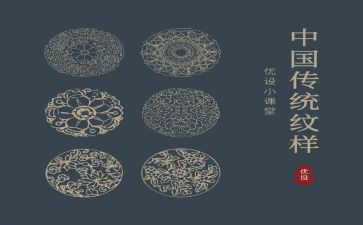清明传统文化作文7篇
如果素材积累不足,作文很容易显得空洞无物,难以引起读者的共鸣和兴趣,能够引人入胜的作文,往往会让读者在结束后仍然回味无穷,留下深刻的印象,路路文书网小编今天就为您带来了清明传统文化作文7篇,相信一定会对你有所帮助。

清明传统文化作文篇1
我的家乡有个风俗,不知从哪一代传到今天,就是清明节兴到祖辈的坟上挂亲。
挂亲,就是把白皮纸,剪成一组一组的长条,挂在木棍上,插在坟上。
以前我也不懂得挂亲是什么意思,这几年大了,每到清明节,幺公便站在他家的院坝边喊。“孝子坟上飘白纸,游子坟上草生青啦,走!挂亲去喽。”
我们便拿着挂亲纸,跟着幺公这山跑那山,用柴刀把祖父,祖母,曾祖父、曾祖母坟上的草修干净,挂上亲。一路上,幺公要给我们讲祖父叫什么名字,曾祖父叫什么名字,和他们在家族中那些感人的故事……叫我们要记住,不要失传。有孝心的儿孙,祖辈的坟上就飘白纸,那是儿孙尽孝,不要小看那一张纸,乡里乡亲的心里有数,你怀念着老一辈,大家评价很高呢。如果儿孙远走他方了,清明节赶不到,这几天他们祖辈的坟上就还是青草。所以清明节挂亲,有前十天和后十天,前十天是给在家的儿孙安排的,后十天就是为离家的游子安排的,远离家乡的游子一定要回来给祖辈挂亲的。
这几年,交通方便了,离家的游子,或乘车,或休假,多在清明节赶回来了。他们带来五颜六色,婀娜多姿的挂亲纸,古老的土家族山寨热闹极了,到处是浓浓的亲情。家家户户都要去挂亲,去感恩尽孝心。
清明传统文化作文篇2
今天是4月5日,转眼间,一年一度的清明节已到来了。清明节有许许多多的习俗,有祭祖,扫墓,踏青,植树。清明节这天呢,要纪念逝去的先人,还要去给他们扫墓。
一大早上,奶奶买来“三生”——鸡、鱼、肉,奶奶把这些菜蒸好,准备了一些酒杯、酒、纸钱、香,还有剪好的清纸,就带着我们就出发了。
一路上,我看见了小河里面,一条条活蹦乱跳的小鱼儿,在清澈的河水里游来游去;看见了那盛开着的桃花,在春风中摇曳着、微笑着;还看见了那路边的小花,在阳光的沐浴下还传来一股清香,我便摘了几朵小花儿,编成一个花环,准备放在老外公的坟前,来表达我对老外公的思念。这时我想起一首关于清明节的诗:清明时节雨纷纷,路上行人欲断魂。借问酒家何处有?牧童遥指杏花村。可今年的清明节却意外地没有下雨,反而艳阳高照。真奇怪呀!
当我们来到了老外公的坟前,奶奶便拿出菜和酒,舅公公扫掉墓碑上的灰尘,然后用刀砍了一根树干,插进坟旁的土堆里面,把清纸挂上去,然后倒了三杯酒,用打火机把香点好,烧了一些纸钱,双手合十的同时嘴里还说了一些想念和保佑的话,最后我们都鞠了三个躬表示哀思。
扫完墓,我们收拾好东西,等纸钱烧成灰烬,才离开了老外公的墓地,清明节是我们可以拜祭和怀念祖先的节日,同时也可以欣赏和拥抱大自然。
清明传统文化作文篇3
"during the qingming festival, it rains one after another, and pedestrians on the road want to break their souls." this poem was written by du mu, a great poet of the tang dynasty. this poem describes the scene of people going to sweep tombs and pay homage to their dead relatives on the day of qingming festival.
there is a legend about the qingming festival: in the jin dynasty, there was a chonger man who was in exile because he was persecuted. while fleeing, once he fainted from hunger. at this time, a man named jie zitui saw that he was so hungry, so he cut a piece of meat from his leg and baked it for him to eat. later, duke jie wanted to help him govern the country. however, jie zitui didnt want to be an official and refused to see duke wen of jin. so duke wen of jin sent people to burn the mountain where he lived, leaving him only one exit to let him out. but jie zitui never came out. he died in the mountain behind his mothers back. in order to commemorate jie zitui, duke wen of jin set the day of jie zituis death as qingming festival.
later, on the tomb sweeping day, people went up the mountain with wreaths, or worshipped their relatives and friends in the mourning hall to express their thoughts for their dead relatives and friends.
“清明节期间,雨接连下,路上行人都想伤魂。”这首诗是唐代伟大的诗人杜木写的.。这首诗描写了清明节那天人们去扫墓、祭拜死去亲人的场景。
关于清明节有一个传说:晋代有一个崇儿人因为受到迫害而流亡。在逃跑时,有一次他饿晕了过去。这时,一个叫姬子推的男人见他这么饿,就从腿上切下一块肉烤给他吃。后来,杰公想帮他治国。然而,姬子妃并不想当官,拒绝见晋文公。于是晋文公派人去烧他居住的山,只留他一个出口让他出去。但杰子推却一直没有出来。他背着母亲死在山里。为了纪念姬子彬,晋国公文将姬子彬去世的日子定为清明节。
后来,在清明节,人们带着花圈上山,或在哀悼大厅祭拜亲友,表达对死去亲友的思念。
清明传统文化作文篇4
“清明时节雨纷纷,路上行人欲断魂。借问酒家何处有?牧童遥指杏花村。”晚唐诗人杜牧这首脍炙人口的《清明》,诉说着思念与哀伤。清明节是我国最重要的祭祀节日,是扫墓和祭奠、追思已故亲人的日子。
清明节前后流传着很多传统的风俗活动。如寒食赐火、清明扫墓、踏青郊游、放风筝、荡秋千、斗鸡、拔河等,这些习俗随着岁月交替和社会变迁,有些已经逐渐被遗忘,连一丝记忆都不复存在,有些仍遗留至今并赋予了新的内涵。
在旧时的青岛,清明节也被看作是一个大节气。寒食节是在清明节的前一天,每家都要断火,吃冷食。冬至后105天谓之寒食,从前的这一天禁火,冷食,故又称“冷节”、“禁烟节”。人们在清明前两天就开时断火,即天不亮就把饭做好,直到落日后再烧火,以示对亲人的怀念,由于人们常把寒食节的活动延续到清明,逐渐将寒食与清明合二为一。
在清明节扫墓的习俗比较盛行,扫墓俗称“上坟”。这一天要去祖坟上填土整坟,扫除沙尘杂草,上香、烧纸,举行祭礼。有的人家要利用这一机会修整坟墓,大多数是象征性地给坟头上添添土,还要在上边压些纸钱,让别人看了,知道此坟尚有后人,所以说,无论家里多穷,清明节都是要去上坟的。人们祭祀完毕,都要进行野餐,将上供的食品吃掉,也就是吃福根,以向先人表示节俭之意。
许多人家都要吃大葱和蛋饼,寓意聪明伶俐,这个习俗一直延续至今。有的人家还要捏面花,称作“蒸小燕”, 吃白面小鸡和鸡蛋。寓意小燕子来了,真正的春天到来了。清明这天早晨全家人一定要吃鸡蛋和小鸡,心明眼亮不得病,很多学生要带鸡蛋给老师以表敬仰。另外,清明节时将印有蝎子图案的纸贴在家里,家中不招蝎子、蜈蚣,尤其是在农村特别盛行。
“清明前后,种瓜点豆”,这是一句流传广泛的民间谚语。清末民初,农村一带开始合理安排农时,清明节这天,好多农家给牲口吃高粱米饭,俗语:“打一千,骂一万,不忘清明节一顿高粱米饭。”吃高粮米粥、麦子粥、玉米粥,表示日子步步高,这一天用粥要让牛、驴等饱餐一顿,以犒赏它们一年的辛劳。
清明传统文化作文篇5
a drizzling rain falls like tears on the mourning day; the mourner's heart is going to break on his way. i ask where there are restaurants, the shepherd boy points at xinghuacun. this is a poem written by du mu, a poet of the tang dynasty, on the qing ming festival. qingming festival is one of the 24 throttle and is a traditional folk festival. when it comes to the qing ming festival, people go to the tomb to plant trees and plant trees. the story of the qing ming festival has to be told from the story of the meson.
according to legend, the warring states era, his 19 years of wandering, jie has been followed, the collapse of exile, the monarch, is the famous one of the spring and autumnwu ba jin. jinwengong to jie jie official, is not willing to do, has been in the mountain carrying a mother. then let him yulinjun disorder on the mianshan search, did not find. so, someone out of an idea, as the three ignition, set the mountain on fire, leaving a party, when the fire started jie will come out of their own. after the fire is ordered to burn up the mountain, but the fire burned for three days and nights, after the fire, ultimately see muon out. the mountain view, both mother holding a push charred big willow tree has died. after looking at both the bodies of worship a push to cry, and then buried the bodies, in order to commemorate jie, jin ordered the mianshan to "lie mountain", the establishment of ancestral temple in the mountains, and to set the mountain on fire this day as the cold food festival, to the country, every year the day taboo fireworks, only eat cold food.
since then, the people can live and work in peace, not home, not to the active map rich jie miss. on the day of his death, there was a ban on fireworks to commemorate the day. also with flour and knead zaoni, swallow appearance, string up with willow, ed in the door, call his soul, this thing called "push yan". since then, hanshi and qingming became a national people's grand festival. whenever people, people is not the fire to cook, only eat cold food. in the north, people only eat well in advance of the cold food such as jujube cake, wheat cake; in the south, many young adults and glutinous rice candied lotus root. every qingming, people put the wicker into a ring worn on the head, the wicker ed fangqianwuhou, in memory of.
细雨如哀悼日的眼泪;哀悼者的心在路上会碎。我问哪里有餐馆,牧童指着兴花村。这是唐代诗人杜木在清明节写的一首诗。清明节是二十四节之一,是传统的民俗节日。说到清明节,人们就去墓里种树,种树。清明节的故事,得从介子的故事讲出来。
相传战国时代,他流浪了19年,杰一直追随,崩塌流亡,君主,是著名的春秋八斤。金文宫给杰杰官,不愿意做,一直抱着妈妈在山上。然后让他玉林君乱上绵山搜索,没有找到。于是,有人出了一个主意,作为三人点燃,点燃了山,留下了一阵聚会,当火点燃时,杰就会自己出来。大火后被命令烧上山,但大火烧了三天三夜,大火过后,最终见木介出来。山景中,两位母亲都抱着一棵推焦的大柳树已经死了。看了两具祭祀尸体后一推而哭,然后埋葬尸体,为了纪念杰,金婉婷下令绵山“卧山”,在山上建立祖庙,并将放火烧山这一天作为冷食节,到全国,每年禁忌烟花, 只吃冷食。
从此,老百姓可以安居乐业,不用回家,不去活跃的地图富杰小姐。在他去世的'那天,禁止燃放烟花以纪念这一天。又用面粉揉捏枣,吞出模样,串柳,艾德进门,召唤他的灵魂,这东西叫“推燕”。从此,汉石、清明节成为全国人民的盛大节日。每当人,人不生火做饭,只吃冷食。在北方,人们只提前吃好枣糕、小麦饼等冷食;在南方,许多年轻人和糯米蜜饯莲藕。每到清明,人们都会把柳条戴在头上的戒指里,柳条戴着方千武侯,以示纪念。
返回目录>>>
清明传统文化作文篇6
中国一年一度的传统节日清明节到了,每年都会给去世的亲人送上一份哀思。我们家也不例外,清晨全家开着车前往墓地,给我去世的爷爷扫墓。在返回的路上,我们会路过烈士陵园,所以爸爸妈妈和奶奶要带我去看看那里的英雄们,我很激动,因为这是我第一次去烈士陵园。
我们来到东仪路的烈士陵园,烈士陵园庄严肃穆,心中充满深深的感动和感慨。一进大门,我先看到两旁有两个笔直石头,上面写的“魂魄托日月,肝胆照河山”,这几个字,然后紧接着两旁有许多高大的松柏树,就像许多战士再守护着烈士们,为烈士们站岗,放哨。紧接着我看见了很大很宽的一面的浮雕墙,浮雕墙的正面雕刻着解放军叔叔勇敢地与敌人做斗争。在背面雕刻着一些光荣牺牲的革命烈士们的头像。
往后走有十四个大字,上面写的是“人民英雄永垂不朽,为人民而死虽死犹生”草坪上有许多漂亮的蒲公英,紧挨着,就是九烈士和曹力如,杜斌丞十一位烈士的墓碑。我和爸爸妈妈提前准备好的菊花为这十一位烈士送上,我轻轻地把菊花放在他们的墓碑前,然后深深的鞠了一躬。在往后走就是所有烈士的墓碑,个个墓碑上面都有一个感人的故事。最让我感动的是九烈士的故事,爸爸给我讲九烈士是在大革命失败后,在西安被国民党集体杀害的共产党员,在九烈士当中最大的33岁,最小的只有18岁,我被这些年轻的烈士们为国献身的精神而感动。
通过这次瞻仰烈士陵园,深深地意识到,我们今天美好的生活,是用烈士们的鲜血换来的,所以我们要好好学习,要做一个对社会有用之人!
清明传统文化作文篇7
ching ming festival is a traditional chinese festival, has a history of two thousand five hundred years; its main traditional cultural activities are: grave, outing, cockfighting, swing, play mat, pull hook, tug-of-war), etc. the members (the grave), is very old. tomb-sweeping day, as a traditional culture, it is a full of mysterious colorific festival, on this day, the pedestrians on the road are missing people who died, to express their respect and grief!
ching ming festival, in hainan many locals call it the "qingming festival". middle age the qingming festival is very important, if not as a legal holiday, they will also take time to go home "qingming festival". this suggests that the qingming festival has become a culture, become a man of the late express a way of missing loved ones.
qingming festival, is a kind of chinese traditional culture recognition and respect. qingming festival is very important in the ancient tradition of a festival, is also the most important festival of festivals, was the day of ancestor worship and the grave. this grave, the shrine of the dead an activity. the han nationality and some minority are mostly in the tombs. according to the old tradition, the grave, people to carry goods such as especially fruit, paper money to the grave, will be food for offering in the family tomb, then paper incineration, new soil up to the grave, fold a few branches pale green branches ed in the grave, and then salute kowtow worship, finally eat especially home. the tang dynasty poet tu mu's poem "qingming" : "rains fall heavily as qingming comes, and passers-by with lowered spirits go. restaurant where? boy pointed apricot blossom village." write the tomb-sweeping day is special atmosphere. until today, tomb-sweeping day ancestor worship, mourning the late relatives customs still prevail. and the more brought to the attention of the people.
chinese is influenced by its culture, make clear the chinese memorial ancestors festival. ancestor worship in qingming festival people are back, this is a kind of culture, a kind of habit.
清明节是中国传统节日,已有两千五百年的历史;其主要传统文化活动有:坟墓、郊游、斗鸡、荡秋千、玩垫、拉钩、拔河)等。成员(坟墓)很老。清明节,作为一种传统文化,是一个充满神秘色彩的节日,在这一天,路上的行人都是失踪的死者,来表达他们的敬意和悲痛!
清明节,在海南很多当地人称之为“清明节”。中年清明节很重要,如果不作为法定节假日,他们也会抽出时间回家“清明节”。这说明清明节已经成为一种文化,成为男人迟到表达的一种想念亲人的方式。
清明节,是中国传统文化的一种认可和尊重。清明节在古代传统中非常重要的`一个节日,也是最重要的节日,是祭祖的日子和坟墓。这个坟墓,死者的神殿是一种活动。汉族和一些少数民族大多在墓葬中。按照古老的传统,坟墓,人们要携带特别水果等物品,纸钱到坟墓里,将食物供奉在家墓中,然后焚纸,新土上坟,在坟墓中折几根淡绿色的树枝,然后敬礼拜拜,最后吃得特别回家。唐代诗人涂牧诗《清明》:“清明来临,雨下大,路人低落。餐厅在哪里?男孩指杏花村。写清明节是特别的气氛。直到今天,清明日祭祖、哀悼已故亲人的习俗仍然盛行。而且越引起人们的注意。
中国人受其文化的影响,明确了中国人的纪念祖先节。清明节人们的祖先崇拜又回来了,这是一种文化,一种习惯。


